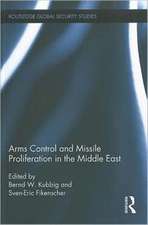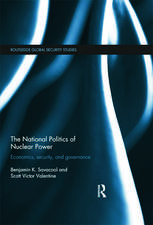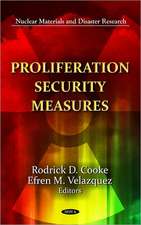Culture and Propaganda: The Progressive Origins of American Public Diplomacy, 1936-1953
Autor Sarah Ellen Grahamen Limba Engleză Hardback – 28 aug 2015
| Toate formatele și edițiile | Preț | Express |
|---|---|---|
| Paperback (1) | 259.98 lei 6-8 săpt. | |
| Taylor & Francis – 30 iun 2020 | 259.98 lei 6-8 săpt. | |
| Hardback (1) | 1008.17 lei 6-8 săpt. | |
| Taylor & Francis – 28 aug 2015 | 1008.17 lei 6-8 săpt. |
Preț: 1008.17 lei
Preț vechi: 1229.48 lei
-18% Nou
Puncte Express: 1512
Preț estimativ în valută:
192.93€ • 200.20$ • 161.26£
192.93€ • 200.20$ • 161.26£
Carte tipărită la comandă
Livrare economică 17-31 martie
Preluare comenzi: 021 569.72.76
Specificații
ISBN-13: 9781472459022
ISBN-10: 1472459024
Pagini: 284
Dimensiuni: 156 x 234 x 18 mm
Greutate: 0.68 kg
Ediția:Revised
Editura: Taylor & Francis
Colecția Routledge
Locul publicării:Oxford, United Kingdom
ISBN-10: 1472459024
Pagini: 284
Dimensiuni: 156 x 234 x 18 mm
Greutate: 0.68 kg
Ediția:Revised
Editura: Taylor & Francis
Colecția Routledge
Locul publicării:Oxford, United Kingdom
Notă biografică
Sarah Ellen Graham is a lecturer at the United States Studies Centre at the University of Sydney. Graham is the author of numerous articles on the history of US foreign policy, diplomatic theory, and public diplomacy. Her work has been published in Diplomatic History, Orbis, Diplomacy & Statecraft, the Australasian Journal of American Studies, Place Branding & Public Diplomacy and the International Studies Review. Her article on Unesco in Diplomatic History was awarded the Stuart L. Bernath Article Prize by the Society for Historians of American Foreign Relations. Graham completed her PhD at the Australian National University, has been a lecturer at the University of Western Sydney, and was also a postdoctoral fellow and lecturer at the University of Southern California.
Descriere
Covering the crucial period between 1936 and 1953, this book explains how new notions of propaganda as reciprocal exchange, cultural engagement, and enlightening information paved the way for innovations in U.S. diplomatic practice. Through a comparative analysis of the State Department’s Division of Cultural Relations, the government radio station Voice of America, and drawing extensively on U.S. foreign policy archives, this book shows how America’s liberal traditions were reconciled with the task of influencing and attracting publics abroad.



















